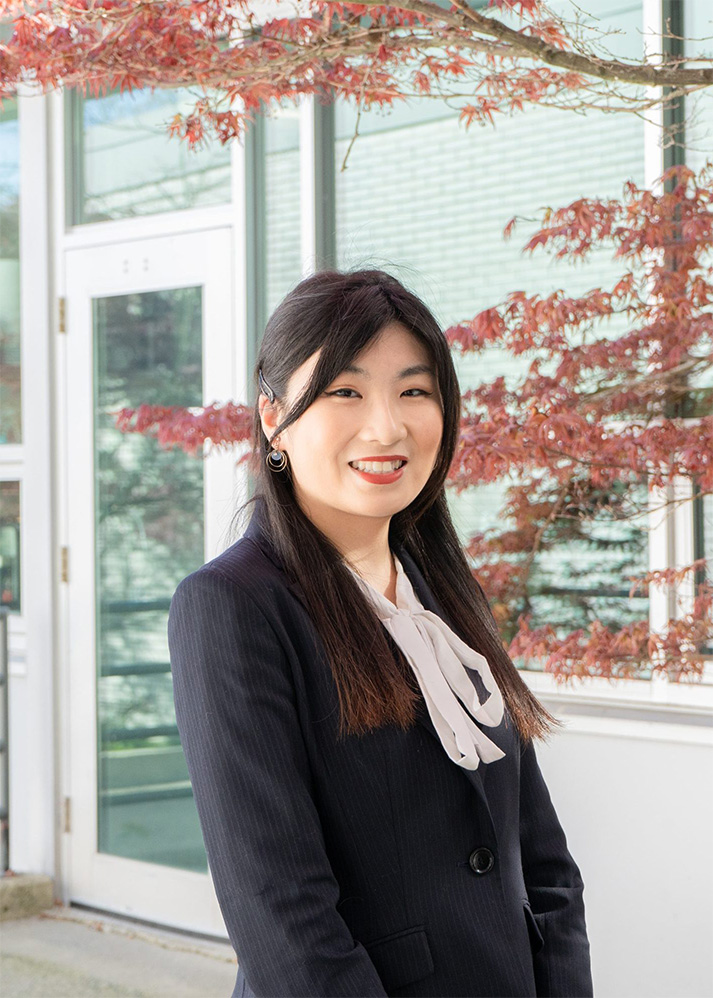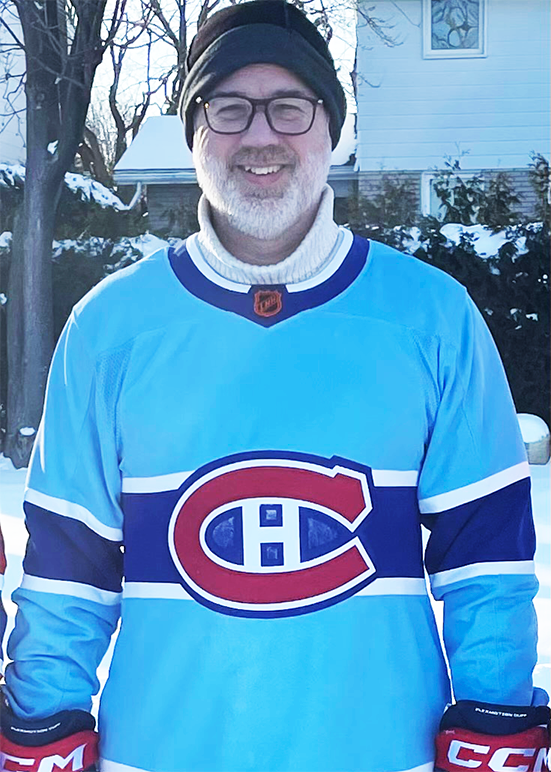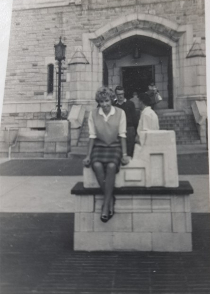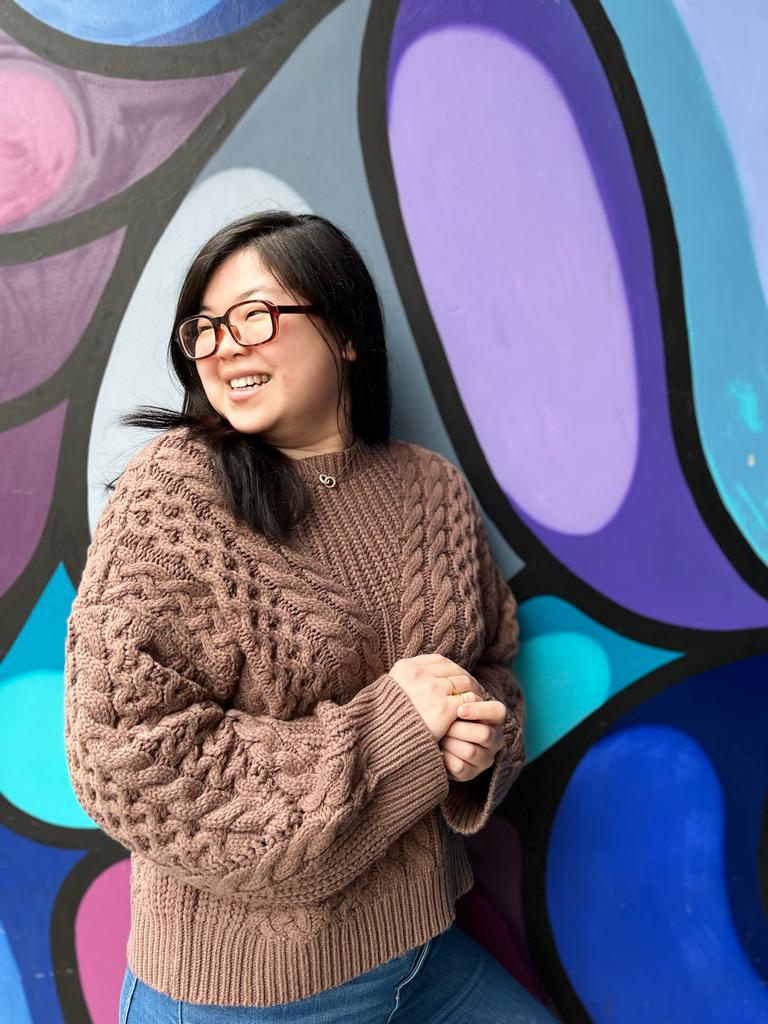Adrian Myers
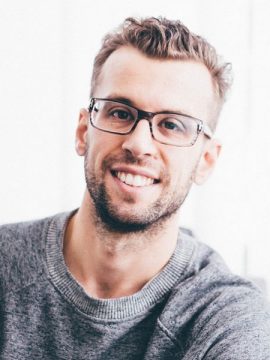
Why did you choose your program at UBC and what did you enjoy most about it?
I chose the UBC History Honours program because a friend recommended it! He told me that it was an opportunity to work directly with professors in a manner that was more typical of graduate studies than BA studies, and this turned out to be true. The greatest benefit of the program was exactly that, it provided me with experience more akin to graduate school and thus prepared me for an MA program I enrolled in next.
What were some of your most meaningful experiences at UBC?
Having close and direct access to history professors who took the time to really guide me and support me in my honours project.
What choices did you make at UBC that contributed to your career success / journey?
Really focusing on my BA Honours thesis project and getting it done efficiently, and then receiving positive reviews on it followed by an award at graduation. This was my first opportunity to take a project from the conceptual stage to full completion—and it was my first taste of the satisfaction of a successful project. Learning both how to complete a research and writing project, and what it feels like to succeed at it, was a critical takeaway from my time at UBC. A drive for new projects and new successes that started at UBC has persisted through later phases of my education and career.
What was your first job after graduation and what other jobs did you have before your current position?
While still at UBC, I held a very interesting research assistant position at the Sauder School of Business – History of Advertising Archives. I then moved to a one year MA program in England, but following that I worked again for about one year as a research assistant at the Vancouver Holocaust Education Centre. I next started a five year stretch in which I completed an MA and then PhD at Stanford University. My first job post PhD was as an archaeologist and project manager with a multinational engineering and environmental consulting firm in Vancouver. I spent five years with this firm, before very recently accepting a new position with BC Hydro in Vancouver.
Is your current career path as you originally intended? What challenges did you face in launching your career?
As with many or most PhD students in the humanities and social sciences, at one time I envisioned myself having a career as a professor. However, the reality now is that there are simply not enough positions opening on a yearly basis to provide stable jobs for even the top candidates looking for positions. As I became more aware of the economics of the academic job market (this was partway through my PhD), I made a conscious decision to change course: my new plan was to finish my PhD as efficiently as possible, and then seek a career in the private sector, perhaps as a consultant of some kind. Once I made this mental adjustment and focused my efforts in this new direction, I had success launching into a career. And I’ve been happy with the decision.
What do you like about your current job and what do you find challenging? How does it relate to your degree?
I am very happy in my current job. My role is to manage a small internal team and a large external team of consultants who are responsible for the archaeological and paleontological studies that are required for construction of BC Hydro’s Site C Dam project, in Fort St. John, BC. There are huge challenges on a day to day basis, often around managing my budget or managing teams of people, or urgent situations occurring on the construction site. My role does draw on my expertise in archaeology, which largely came from my MA and PhD studies. My BA studies in history at UBC were more of a stepping stone into my graduate studies in archaeology.
From your experience, what has been the value of having an Arts degree?
The key benefit for me in obtaining my BA in Arts from UBC was in the training it provided me to be better prepared for my graduate studies. Additionally, some of the connections I made with professors starting even as an undergraduate student have been long lasting and incredibly beneficial over the years. Finally, it was during my BA studies that I really started writing and learning how to be an effective communicator.
Are there any other achievements or activities you would like to highlight?
While as an undergrad student I started learning how to write quality material efficiently, it wasn’t until graduate school that I took that to the next step and started publishing my writing and research. As a PhD student, I published about 15 peer reviewed articles and chapters, as well as an edited book. Finishing my PhD program in five years is another academic achievement I am proud of, as getting graduate studies (particularly PhDs) completed efficiently can be a huge challenge. Career-wise, I was thankfully able to take a highly academic and at times esoteric focus and turn that around into a practical and salable skill set—now that I have a family, including two young kids to support, this is surely the most important thing I have done.
What advice would you give to students and alumni interested in breaking into your industry?
My advice to all students, and particularly to graduate students, is to try to think ahead to what your goals are (e.g. what job you would like to have one day?) and then do the things you should be doing to get yourself there. Don’t forget the practical side of things—one day when you finish school, you will need to get a job and support yourself and perhaps a family. Are you learning the practical skills and making the personal and professional connections that will help you succeed, post school? Don’t think of your degree narrowly as your “ticket” into a certain job or field. Rather, conceptualize and communicate your practical skills. Potential employers don’t care about a piece of paper—they care about skill sets.
What advice would you give your graduating self?
If I could go back in time 10 years, I would have devoted intentional time to developing my “soft skills” (i.e. interpersonal skills). In my experience, “EQ” (Emotional Quotient) trumps “IQ” in most career situations.
Adrian Myers



Why did you choose your program at UBC and what did you enjoy most about it?
I chose the UBC History Honours program because a friend recommended it! He told me that it was an opportunity to work directly with professors in a manner that was more typical of graduate studies than BA studies, and this turned out to be true. The greatest benefit of the program was exactly that, it provided me with experience more akin to graduate school and thus prepared me for an MA program I enrolled in next.
What were some of your most meaningful experiences at UBC?
Having close and direct access to history professors who took the time to really guide me and support me in my honours project.
What choices did you make at UBC that contributed to your career success / journey?
Really focusing on my BA Honours thesis project and getting it done efficiently, and then receiving positive reviews on it followed by an award at graduation. This was my first opportunity to take a project from the conceptual stage to full completion—and it was my first taste of the satisfaction of a successful project. Learning both how to complete a research and writing project, and what it feels like to succeed at it, was a critical takeaway from my time at UBC. A drive for new projects and new successes that started at UBC has persisted through later phases of my education and career.
What was your first job after graduation and what other jobs did you have before your current position?
While still at UBC, I held a very interesting research assistant position at the Sauder School of Business – History of Advertising Archives. I then moved to a one year MA program in England, but following that I worked again for about one year as a research assistant at the Vancouver Holocaust Education Centre. I next started a five year stretch in which I completed an MA and then PhD at Stanford University. My first job post PhD was as an archaeologist and project manager with a multinational engineering and environmental consulting firm in Vancouver. I spent five years with this firm, before very recently accepting a new position with BC Hydro in Vancouver.
Is your current career path as you originally intended? What challenges did you face in launching your career?
As with many or most PhD students in the humanities and social sciences, at one time I envisioned myself having a career as a professor. However, the reality now is that there are simply not enough positions opening on a yearly basis to provide stable jobs for even the top candidates looking for positions. As I became more aware of the economics of the academic job market (this was partway through my PhD), I made a conscious decision to change course: my new plan was to finish my PhD as efficiently as possible, and then seek a career in the private sector, perhaps as a consultant of some kind. Once I made this mental adjustment and focused my efforts in this new direction, I had success launching into a career. And I’ve been happy with the decision.
What do you like about your current job and what do you find challenging? How does it relate to your degree?
I am very happy in my current job. My role is to manage a small internal team and a large external team of consultants who are responsible for the archaeological and paleontological studies that are required for construction of BC Hydro’s Site C Dam project, in Fort St. John, BC. There are huge challenges on a day to day basis, often around managing my budget or managing teams of people, or urgent situations occurring on the construction site. My role does draw on my expertise in archaeology, which largely came from my MA and PhD studies. My BA studies in history at UBC were more of a stepping stone into my graduate studies in archaeology.
From your experience, what has been the value of having an Arts degree?
The key benefit for me in obtaining my BA in Arts from UBC was in the training it provided me to be better prepared for my graduate studies. Additionally, some of the connections I made with professors starting even as an undergraduate student have been long lasting and incredibly beneficial over the years. Finally, it was during my BA studies that I really started writing and learning how to be an effective communicator.
Are there any other achievements or activities you would like to highlight?
While as an undergrad student I started learning how to write quality material efficiently, it wasn’t until graduate school that I took that to the next step and started publishing my writing and research. As a PhD student, I published about 15 peer reviewed articles and chapters, as well as an edited book. Finishing my PhD program in five years is another academic achievement I am proud of, as getting graduate studies (particularly PhDs) completed efficiently can be a huge challenge. Career-wise, I was thankfully able to take a highly academic and at times esoteric focus and turn that around into a practical and salable skill set—now that I have a family, including two young kids to support, this is surely the most important thing I have done.
What advice would you give to students and alumni interested in breaking into your industry?
My advice to all students, and particularly to graduate students, is to try to think ahead to what your goals are (e.g. what job you would like to have one day?) and then do the things you should be doing to get yourself there. Don’t forget the practical side of things—one day when you finish school, you will need to get a job and support yourself and perhaps a family. Are you learning the practical skills and making the personal and professional connections that will help you succeed, post school? Don’t think of your degree narrowly as your “ticket” into a certain job or field. Rather, conceptualize and communicate your practical skills. Potential employers don’t care about a piece of paper—they care about skill sets.
What advice would you give your graduating self?
If I could go back in time 10 years, I would have devoted intentional time to developing my “soft skills” (i.e. interpersonal skills). In my experience, “EQ” (Emotional Quotient) trumps “IQ” in most career situations.
